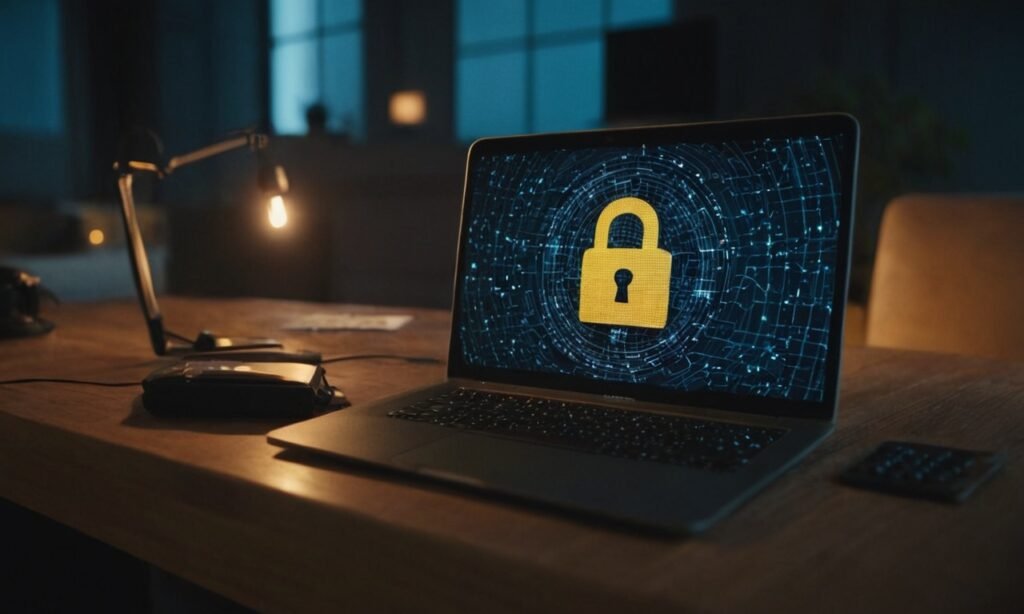How Blockchain Enhances Cybersecurity
Now that we’ve got the basics covered, let’s delve into how blockchain can boost cybersecurity.
Key Features of Blockchain
- Decentralization: Unlike traditional databases that are controlled by a single entity, blockchain is maintained by a network of nodes, making it less vulnerable to attacks.
- Transparency: All transactions are visible to everyone on the network, which enhances accountability.
- Immutability: Once data is added to the blockchain, it cannot be altered or deleted, ensuring data integrity.
Data Integrity
One of the standout features of blockchain is its immutability. Once data is written to a blockchain, it cannot be changed. This is a game-changer for cybersecurity because it means that data stored on a blockchain is tamper-proof. Hackers can’t just slip in and alter records without detection.
Decentralized Data Storage
Traditional data storage methods often involve central servers, which are prime targets for cyber attacks. Blockchain, on the other hand, spreads data across a network of nodes. This decentralized approach means there’s no single point of failure. Hackers would need to simultaneously compromise a majority of the nodes to alter the data, which is practically impossible with a well-secured blockchain network.
Secure Transactions
Blockchain technology ensures that transactions are secure and transparent. Every transaction is verified by multiple nodes before being added to the blockchain, making fraud detection easier and more reliable. This is particularly useful in sectors like finance and supply chain management where transaction security is paramount.
Real-World Applications
Blockchain isn’t just theoretical when it comes to cybersecurity; it’s already being used in various industries to enhance security measures.
Financial Services
The financial sector is a prime beneficiary of blockchain technology. Banks and financial institutions use blockchain to secure transactions, reduce fraud, and enhance transparency. For instance, blockchain can prevent double-spending and ensure that transactions are accurately recorded and verifiable.
Healthcare
In the healthcare industry, protecting patient data is crucial. Blockchain provides a secure way to store and share medical records. Patients can have control over their data, granting access to healthcare providers as needed. This not only enhances security but also improves the efficiency of healthcare services.
Supply Chain Management
Supply chains are complex and often involve multiple parties, making them vulnerable to fraud and mismanagement. Blockchain ensures that every step of the supply chain is recorded and visible to all parties involved. This transparency helps in verifying the authenticity of products and preventing counterfeit goods from entering the market.
Potential Challenges
While the benefits are impressive, it’s important to acknowledge that blockchain technology isn’t a silver bullet. There are challenges and limitations to consider.
Scalability
One of the major hurdles is scalability. As more transactions are added to the blockchain, the size of the ledger increases. This can lead to slower transaction times and higher storage requirements.
Energy Consumption
Blockchain networks, especially those using proof-of-work consensus mechanisms, consume significant amounts of energy. This has raised concerns about the environmental impact of blockchain technology.
Regulation and Adoption
The regulatory landscape for blockchain is still evolving. Different countries have different approaches to blockchain regulation, which can create a complex environment for businesses operating across borders. Additionally, widespread adoption of blockchain requires significant changes to existing systems and processes, which can be a barrier for some organizations.
FAQs
What is the main advantage of using blockchain for cybersecurity?
The primary advantage is the immutability and decentralization of data. Blockchain ensures that data cannot be tampered with and is securely distributed across a network of nodes, reducing the risk of attacks.
Can blockchain be hacked?
While no system is entirely immune to hacking, blockchain’s decentralized nature makes it extremely difficult for hackers to alter data. Compromising a blockchain network would require gaining control of a majority of the nodes, which is practically unfeasible for well-secured networks.
Is blockchain only useful for financial transactions?
Not at all! While blockchain is well-known for its role in cryptocurrencies, it has applications in various sectors, including healthcare, supply chain management, and even voting systems.
How does blockchain ensure transparency?
Every transaction on a blockchain is recorded in a public ledger that is visible to all network participants. This transparency enhances accountability and makes it easier to detect fraudulent activities.
Conclusion
Blockchain technology is revolutionizing the way we approach cybersecurity. Its unique features, such as immutability, decentralization, and transparency, make it an ideal solution for enhancing data security across various industries. While challenges like scalability and energy consumption need to be addressed, the potential benefits of blockchain in cybersecurity are undeniable.
As cyber threats continue to evolve, so must our security measures. Blockchain offers a promising path forward, one where data integrity and security are paramount. Whether it’s securing financial transactions, protecting patient data, or ensuring the authenticity of products in a supply chain, blockchain is proving to be a versatile and powerful tool in the fight against cybercrime.
By embracing blockchain, we’re not just keeping up with the times; we’re staying ahead of the curve. So, what are you waiting for? It’s time to explore the exciting possibilities that blockchain brings to the table in the realm of cybersecurity!

